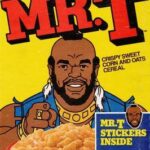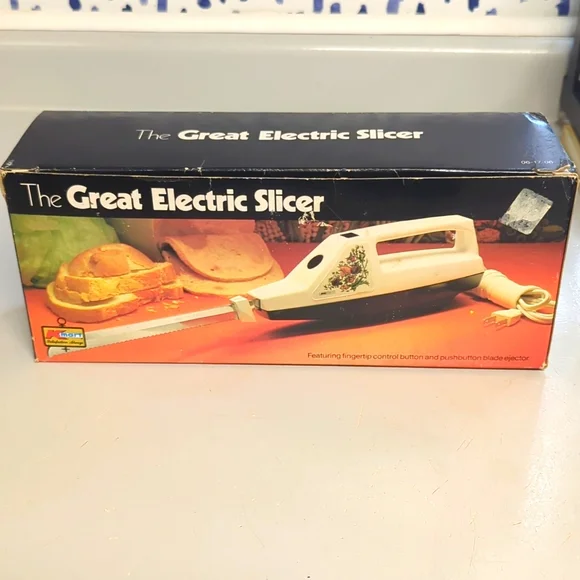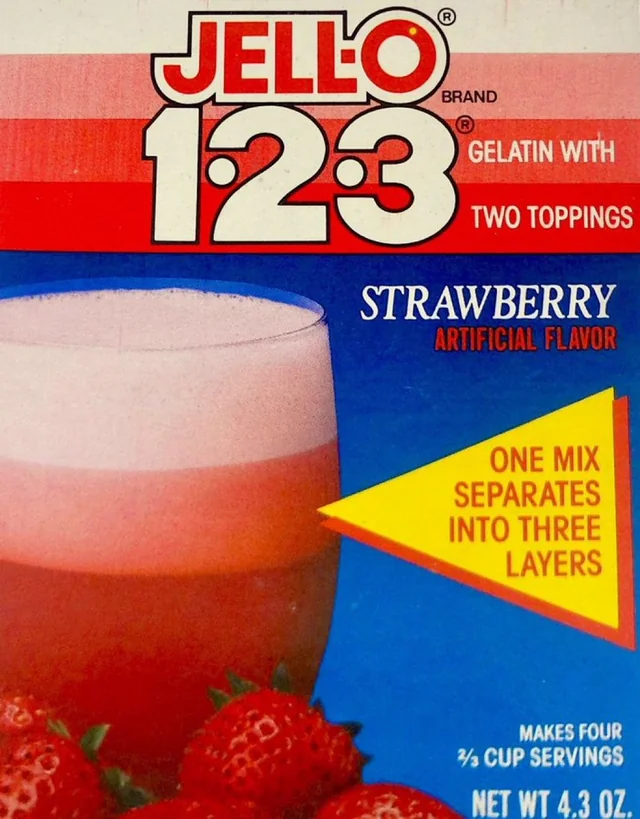 Few products better encapsulate the colorful, hyper-marketed pop culture explosion of the 1980s than Mr. T Cereal. It was sweet, crunchy, and unapologetically loud—just like the man who inspired it. Released in 1984 by Quaker Oats, Mr. T Cereal wasn’t just another breakfast option in a crowded supermarket aisle. It was an edible tribute to one of the decade’s most iconic personalities, and a symbol of how larger-than-life TV stars could leap from the screen and land directly into the breakfast bowls of millions of kids.
Few products better encapsulate the colorful, hyper-marketed pop culture explosion of the 1980s than Mr. T Cereal. It was sweet, crunchy, and unapologetically loud—just like the man who inspired it. Released in 1984 by Quaker Oats, Mr. T Cereal wasn’t just another breakfast option in a crowded supermarket aisle. It was an edible tribute to one of the decade’s most iconic personalities, and a symbol of how larger-than-life TV stars could leap from the screen and land directly into the breakfast bowls of millions of kids.
Mr. T—born Laurence Tureaud—rose to fame in the early 1980s thanks to a unique mix of tough-guy charisma, distinctive style, and unexpected wholesomeness. Best known for his role as B.A. Baracus on the hit TV show The A-Team and for squaring off against Sylvester Stallone as Clubber Lang in Rocky III, Mr. T was a walking, talking action figure come to life. He wore layers of gold chains, spoke in memorable catchphrases (“I pity the fool!”), and rocked a signature mohawk inspired by Mandinka warriors. But beyond the gruff voice and intimidating presence, Mr. T also had a kid-friendly side. He preached respect, hard work, and staying in school. In a media landscape full of anti-heroes and rebels, Mr. T was a rare symbol of positive masculinity—a tough guy with a heart of gold.
It was this unique appeal that made him the perfect candidate for a cereal aimed at children. In the 1980s, the Saturday morning cartoon economy was booming, and breakfast cereals were a key battleground for brand loyalty. Quaker saw an opportunity to capitalize on Mr. T’s immense popularity by creating a cereal that bore his name, likeness, and—crucially—his unmistakable “T” symbol.
Mr. T Cereal hit shelves in 1984 and immediately stood out. The box was bold and bright, with Mr. T’s face front and center, arms folded, staring out with confident intensity. Behind him were bowls brimming with golden “T”-shaped pieces—corn and oat cereal that resembled oversized versions of the letter T. The tagline promised a “crispy sweet corn and oat cereal,” and while it wasn’t exactly a health food, it wasn’t trying to be. Mr. T Cereal was pure, unfiltered fun. Its sugary crunch was somewhere between Cap’n Crunch and Lucky Charms, minus the marshmallows.
The cereal quickly gained traction thanks in part to Mr. T’s relentless cultural ubiquity. He was everywhere—TV, movies, wrestling events, PSAs, and now, breakfast. A commercial for Mr. T Cereal featured animated segments with kids eating the cereal and becoming energized with Mr. T’s values: strength, honor, and doing your best. The voiceover, naturally, was done in Mr. T’s distinctive growl. The cartoon Mr. T would leap onto the screen and declare things like, “I pity the fool who don’t eat my cereal!”—a marketing line so ridiculous it looped all the way back around to genius.
At its peak, Mr. T Cereal wasn’t just a food item—it was a status symbol. Kids wanted to pour a bowl of T-shaped crunch just as much as they wanted to wear feather earrings or collect The A-Team action figures. For a generation of children, the cereal represented empowerment. Eating it felt like channeling Mr. T’s confidence and toughness. You weren’t just starting your day—you were launching into it with mohawked ferocity.
The cereal even crossed over into pop culture in a way few licensed foods ever have. One of the most famous appearances of Mr. T Cereal came in the 1985 film Pee-wee’s Big Adventure. In the film’s opening scenes, Pee-wee Herman makes himself a ridiculously elaborate breakfast with the help of Rube Goldberg-style machines. What cereal does he pour into his bowl? Mr. T, of course. He even exclaims “I pity the fool who don’t eat my cereal!” in a voice mimicking Mr. T, further cementing the product’s place in the 1980s zeitgeist.
Despite its initial success and the strength of Mr. T’s brand, the cereal didn’t last long. Like many celebrity-endorsed products of the time, its popularity was tied directly to the star’s cultural dominance. As The A-Team faded from television and newer characters began to capture kids’ attention, Mr. T Cereal slowly disappeared from shelves. By the late 1980s, it was discontinued entirely, remembered fondly by kids who had grown up on its sugary crunch and boisterous commercials.
Today, Mr. T Cereal holds a kind of mythic status among collectors of 1980s memorabilia. Vintage boxes regularly pop up on eBay and in retro pop culture exhibits. An unopened box in decent condition can fetch hundreds of dollars, a testament to the deep nostalgic hold the product still has. It’s one of those rare cereal brands—like E.T. Cereal, Pac-Man Cereal, or Nintendo Cereal System—that perfectly captured a moment in time when kids’ breakfasts were colorful, gimmicky, and driven by licensed characters from other media.
But beyond the novelty, there’s something endearing about Mr. T Cereal and its brief reign. It wasn’t just another sugary breakfast treat—it was an edible extension of a larger-than-life character who truly resonated with children. Mr. T wasn’t cynical, ironic, or marketed through a veil of sarcasm. He told kids to believe in themselves, to stay in school, to be respectful. That might seem quaint today, but in the high-energy, over-commercialized environment of the 1980s, that message stood out.
And so, Mr. T Cereal lives on not just as a nostalgic artifact, but as a weirdly wholesome reminder of a different kind of celebrity branding—one built not just on recognition, but on values. It wasn’t the healthiest breakfast, but it came with a shot of confidence and a spoonful of self-respect. As Mr. T himself might say, it made you feel strong, even before you finished your orange juice.
In the end, Mr. T Cereal is more than just a footnote in food history. It’s a love letter to a time when breakfast could be loud, ridiculous, and completely awesome. And if you were lucky enough to eat a bowl while watching Saturday morning cartoons, you probably still remember that first crunchy bite with a smile.


